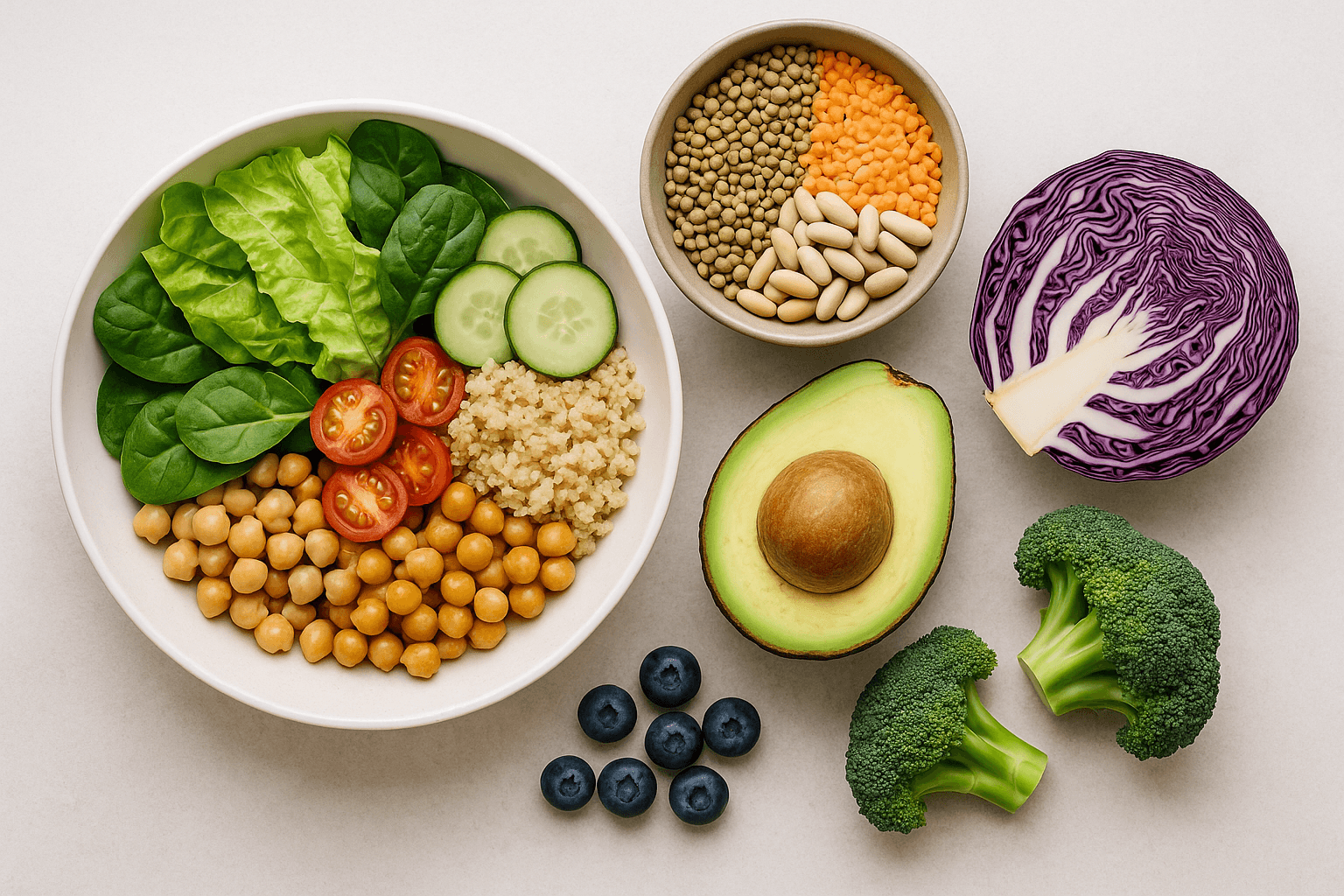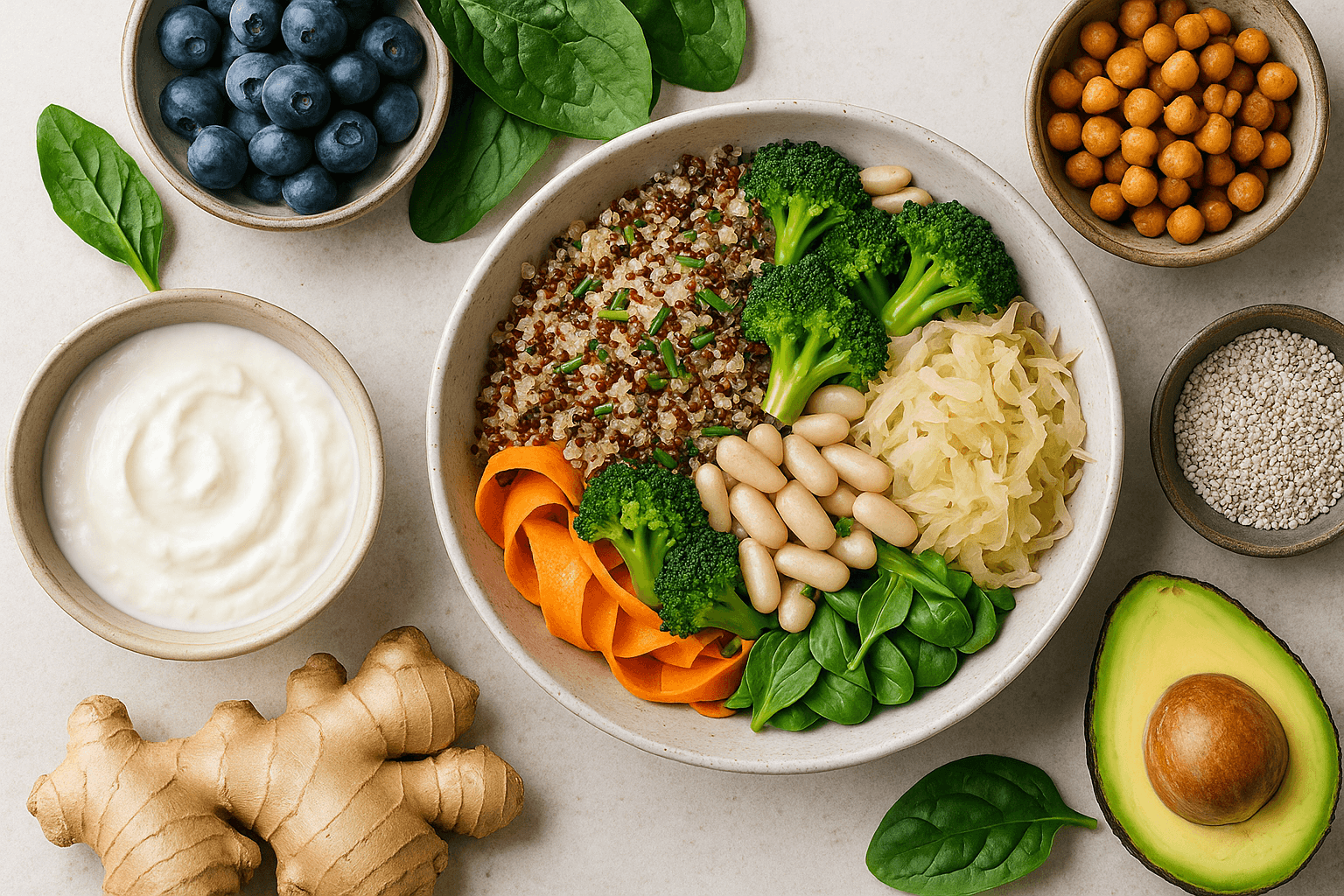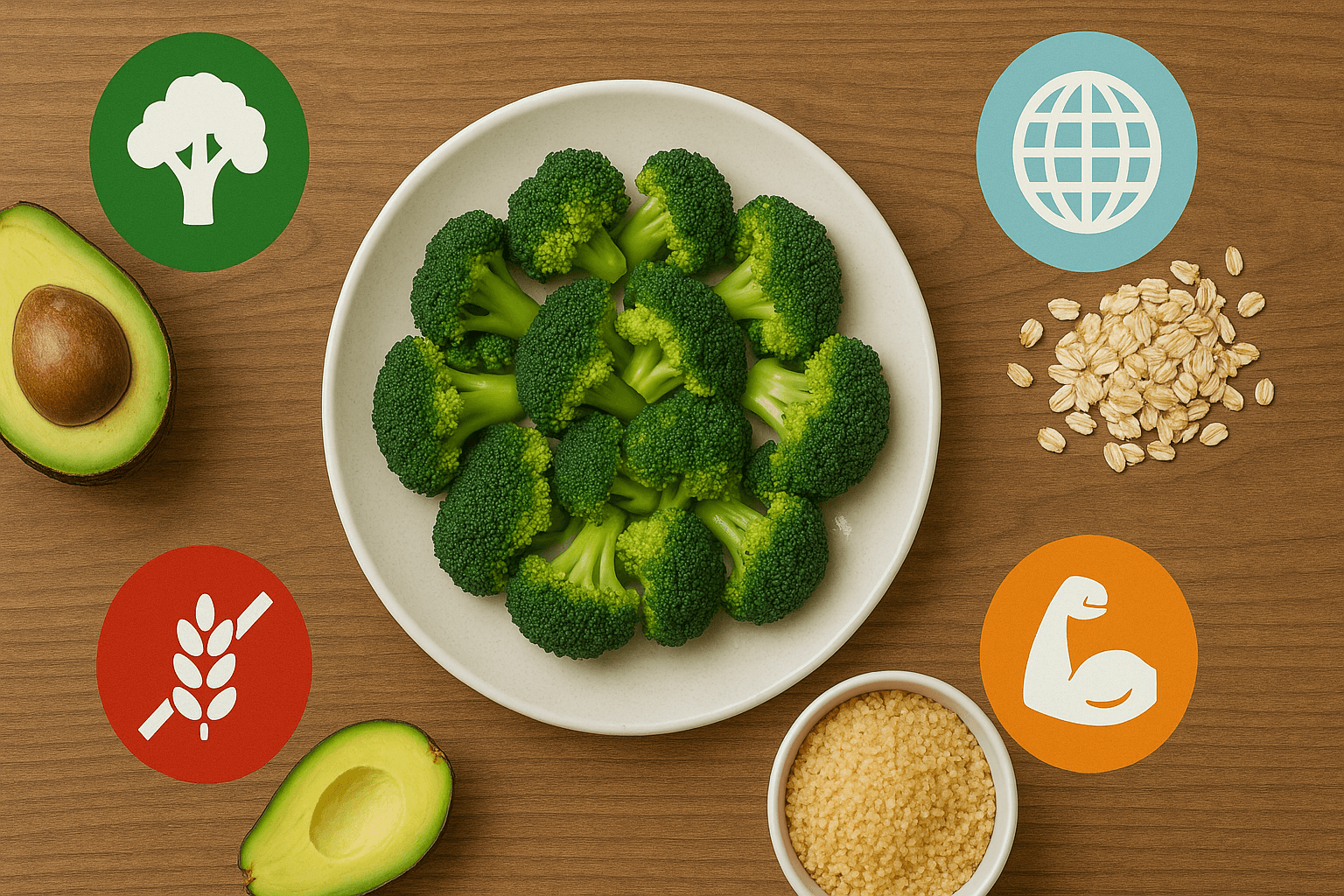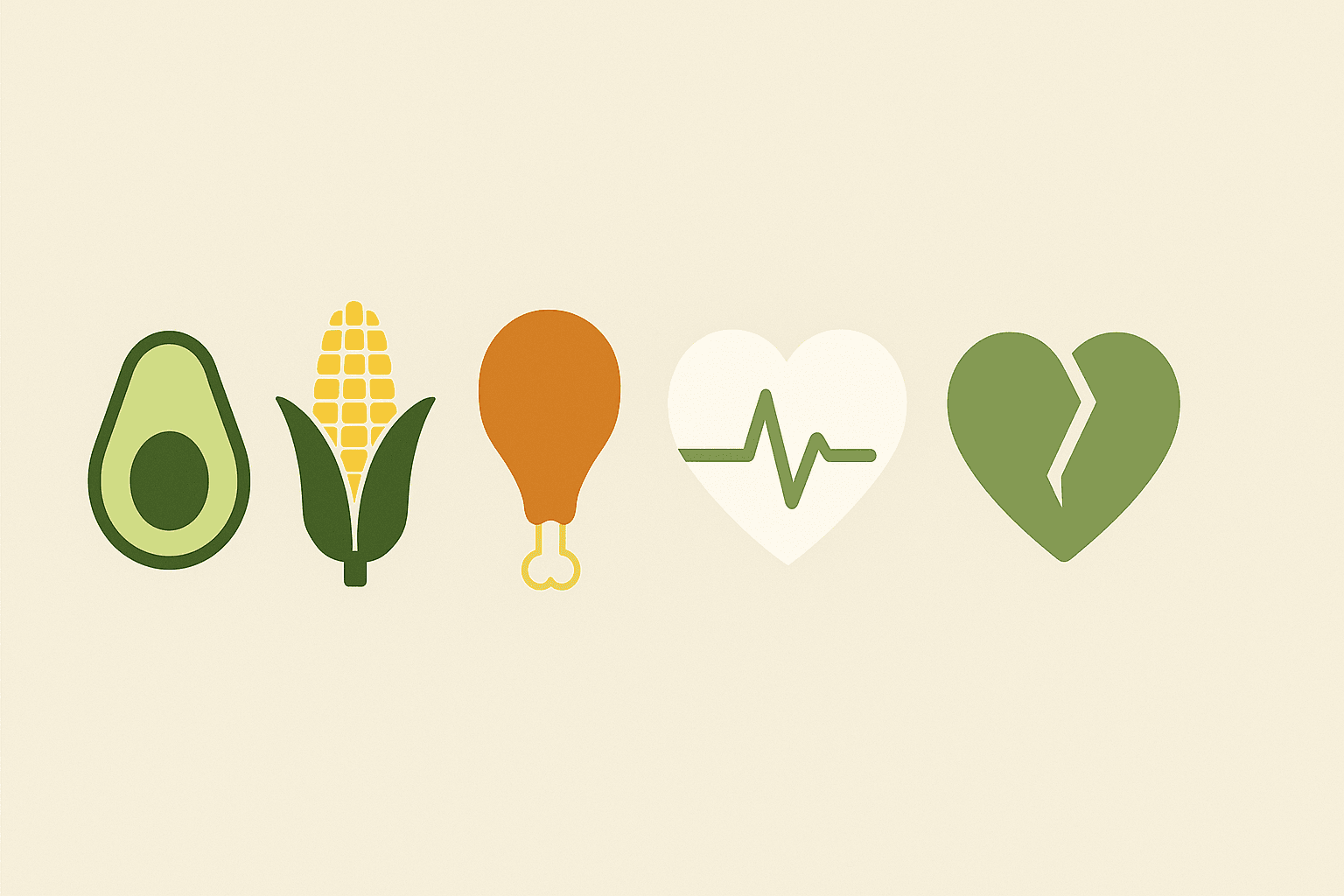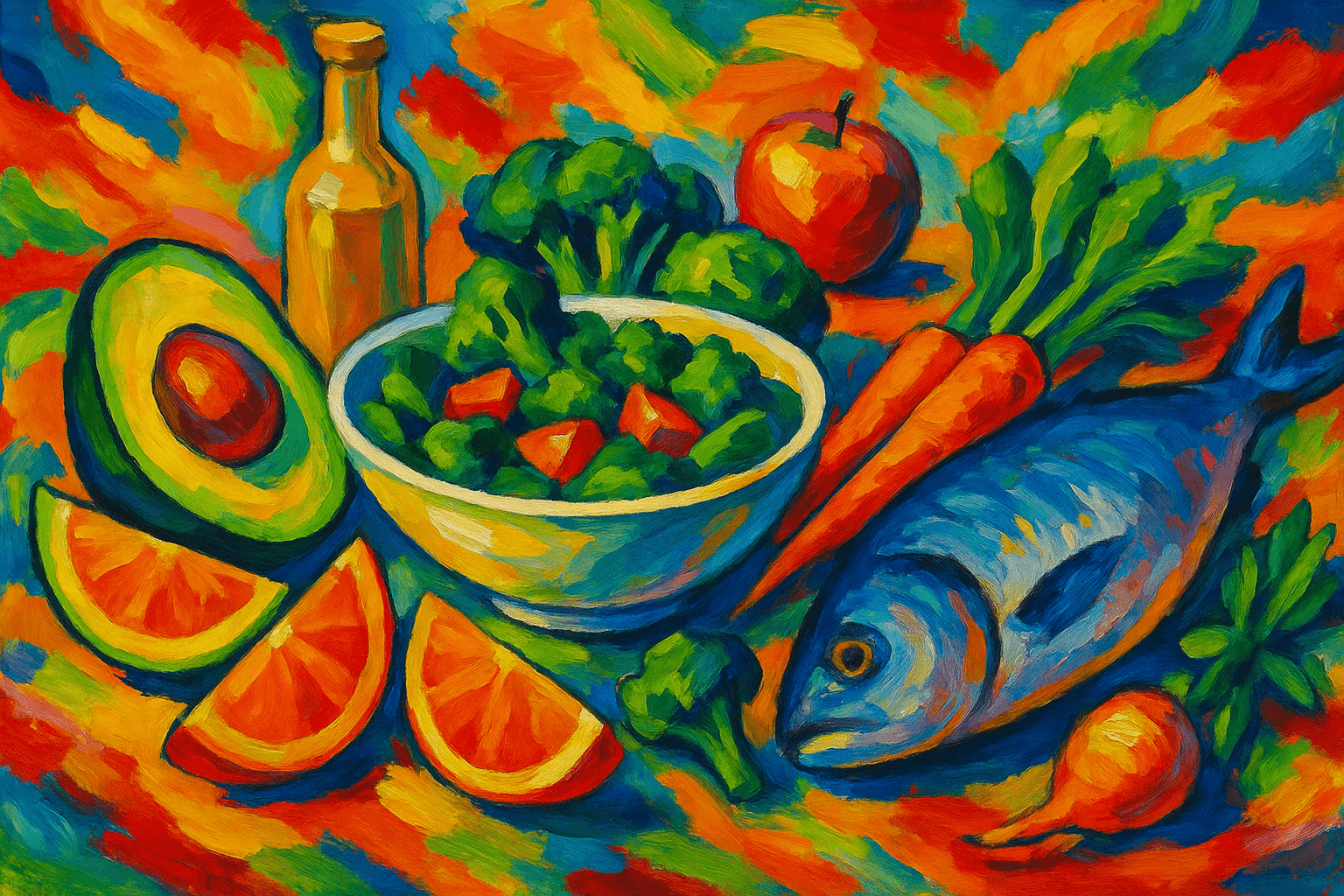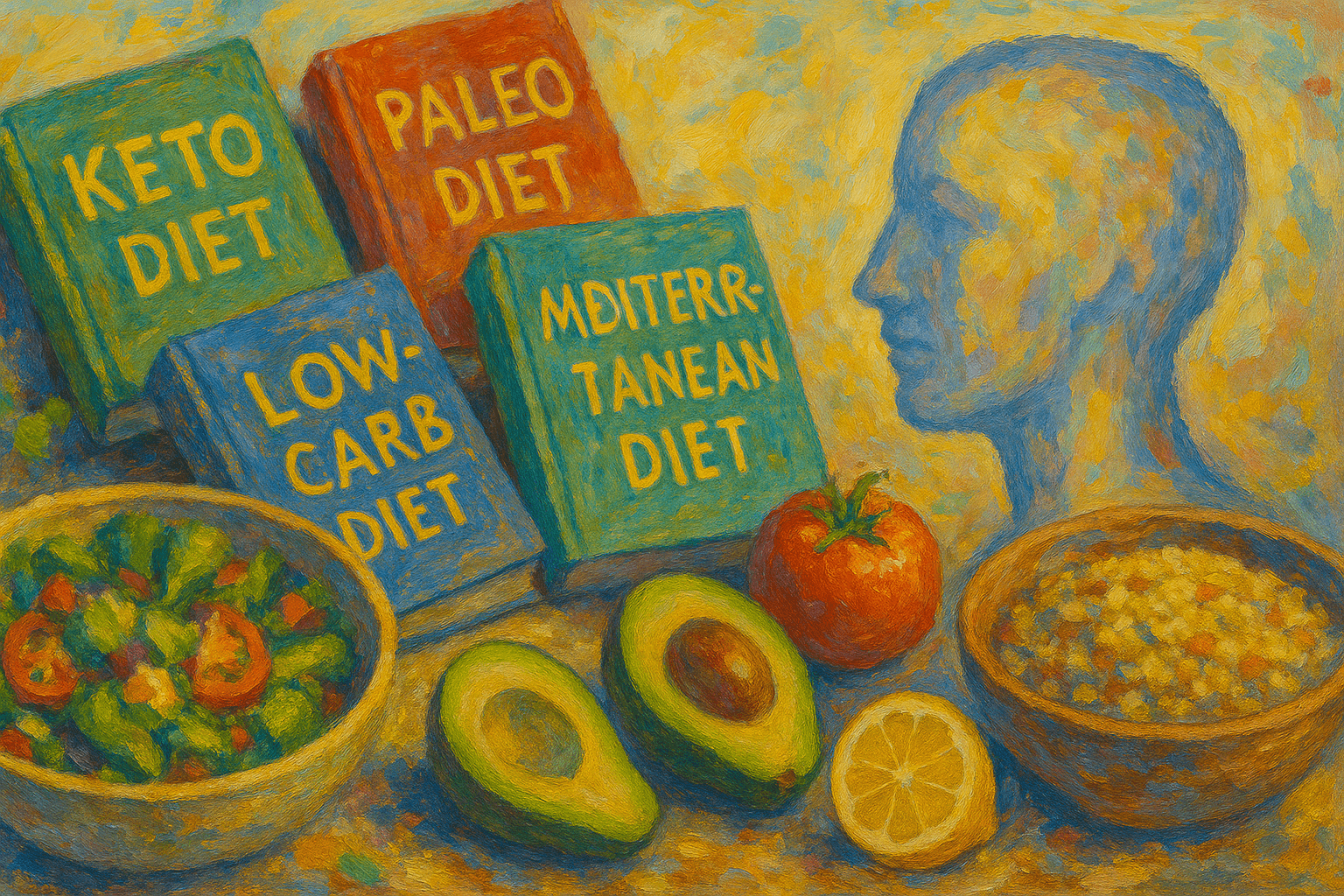THE TRUTH ABOUT SPECIAL DIETS: SCIENCE, STRATEGIES, AND HOW TO MAKE THEM WORK FOR YOU
Published on August 6, 2025

From gluten-free fads and the plant-based movement to the keto craze and time-restricted eating, diets have proliferated more than ever in the modern age. There are more options, the landscape of nutrition is so complex and full of conflicting advice, miracle claims. If you have felt overwhelmed by the array, you are not alone! While the breadth of alternative diets can motivate us and give us some confidence, they can also make us feel discouraged and lost. So which one of these diets work? Who really needs them? And the biggest question of all- how do you figure out what you should be eating so that it not only fuels your body, but also your life and happiness? However, as a dietitian who eats, lives, and breathes real-world nutrition useful information for you to reach informed conclusions about how to include special diets into your own personal story processful in the real world.
Special diets – what are they and why do they matter?
This sort of a diet isn't possible a fad or a temporary change in eating habits, it is an intentional decision to eat differently for some cause. There is also those instances when you need it for medical reasons e.g. gluten-free diet for celiac disease or counting carbs due to diabetes. In other instances, you might just value different things — whether it be the planet in which case eating plant-based makes the most sense, or your religion and you decide to only kosher options or supporting local food systems. Diets can also be used for short term trials to identify sensitivities or as a mental reset on the relationship with food.
The important aspect is that if a special diet is healthy and empowering, it should leave you feeling more high-vibe and confident, not hungry or worried about people thinking you're cranky. This is how special diets can help:
Therapeutic: These diets with help of a professional are going to be used to manage conditions like food allergies, IBS, heart disease or metabolic syndrome. People with these conditions must eat the right diet for their own health and safety, or even their life.
Chronic Disease: The Mediterranean and DASH diets are associated with reducing the risk of developing chronic disease, increasing life span and healthy aging. These are not fad diets—these are all researched over many decades.
Ethical and Lifestyle Driven: A lot of people consider that food should not only be about nutrition. The ideologies behind following a vegetarian, vegan, kosher, halal or climate-conscious diet are deeply rooted in belief systems that are centuries-old or simply centered around protecting animals and the world.
Optimized For Performance: Of course, athletes would want to set their macros, timing and how nutrient dense they snack on foods to help recover faster, gain muscle or just boost stamina!
Exploratory: Short-term “reset” diets or elimination protocols, like GAPS introduce you to see if food indeed seems beneficial or symptomatic, and have the least amount of negative outcomes.
The true power of the special diets, in my opinion, is that they care more about what you need or want and can meet you where you are—helping to pull towards a life/health/values commitment more than pursue on constant pursuit of the golden health ticket.
Science, Pros + Cons was originally published in The most popular special diets on Medium, where people are continuing the conversation by highlighting and responding to this story.
Intermittent Fasting
What It Is: This is an eating / abstaining pattern (daily 16:8, alternate day fasting or the 5:2 approach) I am not really what you eat, but when you eat it.
The Science: Studies suggest it can aid weight maintenance, improve blood sugar, reduce inflammation and may even help you live longer because it activates cell repair. But it’s no magic bullet. You can optimize the benefits that come with it by eating nutrient-dense foods and not overconsuming during your feeding windows. It may be unsafe for kids, teenagers, pregnant or breastfeeding women and other people at risk of health conditions or eating disorders.
Real-World Tip: Small changes are the way to go, for instance having dinner an hour earlier and waking up a bit later in the morning. Lead with a plate half full of vegetables, listen to how you feel and adjust from there. We cannot disregard social events and busy schedules so choose a pattern that truly works with your life.
Keto and Low-Carb Diets
What It Is: Keto is high-fat and ultra-low-carb, which forces to your body to run off fat instead of sugar to keep you going. Different low-carb diets do it that way to some extent, but all of them restrict processed grains carb-dense foods like bread, pasta, and rice as well as sugar, while encouraging fats and proteins.
The Science: Keto seems to be well demonstrated for some conditions—primarily epilepsy and select instances of type 2 diabetes. Yes, it allows you to lose weight relatively easy. It may kick some sugar cravings too. But keto isn’t for everyone. It can raise cholesterol, cause fatigue or “keto flu” during adaptation, and long-term effects on heart health are not yet known. A formal strict keto regimen is one that is difficult for many individuals to adhere to and the biggest gains are often made by stopping heavily processed carbs — not avoiding every grain and fruit ever known.
Real-World Tip: Load up on low-carb veggies and monounsaturated fats such as olive oil, nuts, and avocado while steering clear of processed meats, butter, and cheese (no plants allowed). Before you begin, you should speak to your doctor or a registered dietitian if you suffer from any chronic health problems or take medications.
Plant-Based, Vegetarian, and Vegan Diets
What It Is: With vegetables, fruits, whole grains, legumes, nuts and seeds taking centre stage and minimal to no room for animal foods. Vegetarians also include eggs & dairy, whereas vegans do not consume any products that come from or are produced by an animal.
The Science: A well thought-of plant-based diet is a wonderwed for both heart health, longevity, prevention of cancer and even Blues. Plant chemicals — fiber, antioxidants, and phytochemicals that fight inflammation and support a more diverse microbiome in some cases. However, these diets often do require some additional planning — for instance, B12, iron, calcium, omega-3s and zinc may need to be taken in from fortified foods or supplements.
Real-World Tip: Think a rainbow of plants, combining protein sources (for example, mixing beans and grains) and, if you choose to also eat a vegan diet, consider supplementing with B12 and omega-3s as well. Flexible is key, and even the bare minimum of some plant-based meals every week can provide a substantial impact.
Gluten-Free and Low-FODMAP Diets
What It Is: Gluten-free — Avoids all sources of wheat, barley, and rye; a must for those with celiac disease or gluten sensitivity. Limiting fermentable carbs called FODMAPs which can contribute to bloat and IBS symptoms, the diet reinstates foods one by one.
The Science: For those with celiac disease or true gluten sensitivity, a gluten-free lifestyle is mandatory and life-altering. In other cases, it is frequently not required to do so —and this processed gluten-free foods may be stumpy in nutrients and higher sugar too. Graded 2 (low) — Low-FODMAP, guided by a qualified professional, is effective for IBS symptoms but has been developed as a diagnostic protocol for use over weeks to months and not as an ongoing lifestyle.
Real-World Tip: Enjoy low FODMAP or gluten-free whole foods at each meal. Base your meals around naturally gluten or low-FODMAP free whole food options — meat, poultry and/or fish (fatty varieties also include omega-3 fatty acids), non-wheat grains like quinoa or brown rice, along with plenty of green-based vegetables. Unprocessed gluten-free foods tend to be high in fiber, so try to keep your baked products somewhere in the range of whole-food ingredients as possible.
Mediterranean, DASH, and Traditional Diets
What It Is: They are based on eating patterns from the world Blue Zones — locations in which humans generally tend to live long, active lives. They include a diet rich in vegetables, fruits, beans, nuts, olive oil and whole grains; moderate animal foods; and limited processed sugar and refined grains.
The Science: It is well documented the Mediterranean and DASH diets help to prevent heart disease, diabetes, stroke and cognitive decline over dozens of years of studies. Diets associated with longevity, strong bones and better mood. Their not-so-secret sauce includes keeping it flexible, the real food ideals and relishing meals eaten in company.
Real-World Tip: Diversity in _—Plants; Seafood or beans; Flavor via bold seasonings and spices — take the time to savor your meal with others.
Paleo, Whole30, and Elimination Diets
What It Is: Short-term “reset” plans that cut out processed foods, grains, dairy, legumes and sugar to get back to whole eating and identify sensitivities
The Science: This type of diet might be great for snapping bad habits and finding what sends you on a food bender, but I still think whole foods should get top billing. But going without grains and legumes on a long-term basis may mean less fibre as well as other nutrients. The most nutritious “paleo” or Whole30 style eventually starts to add more foods back in, for sanity.
Real-World Tip: These have to serve as experiments, not life sentences. Then slowly reintroduce foods and listen to how your body responds. Take it as a learning opportunity and construct a well-rounded, sustainable structure that incorporates every food out there.
Offer All The Special Diets in the World But Without Personalization They Won´t Work
The best diet is the one that works for you, fits your lifestyle, accommodates your personal taste and meets your individual needs – There is no single best diet suitable for everyone.
Get to the “why” behind it — Do you want to prevent disease, address a health condition, support a cause (like factory farming), or simply feel better? The clarity will keep you on focus and motivated.
Nutrient Design: Each time you apply a ban on diet, you also run the risk of cutting critical vitamins or minerals (and fiber). Educate yourself, use supplements as needed and don´t hesitate to ask a dietitian for help.
Life changes, so should your nutrition approach. Its perfectly fine to change what you are eating based on your needs, preferences or circumstances of the moment.
Listen to your body: Check in on how you feel — energy, digestion, mood, sleep, and cravings are all important indicators. You can then use those responses to refine your plan.
Busting Special Diet Myths
“Special diets are all-or-nothing.” Not at all! Just a handful of plant-based, Mediterranean or low-sodium meals every week does wonders. Progress is what matters.
“Supplements are always required.” Not necessarily. Vegan diets typically need B12 and omega-3 supplements, but overall they can be nutritionally complete through careful planning. Personalize your approach.
“Trendy means healthy.” Not everything that seems to be in vogue is the best fit for you. Focus on only those healthy habits, that are both sustainable and proven by evidence to be efficacious for the individual concerned.
So You Want to Try a Special Diet? (The Non Cheesy and Stressful Way)
Slowly, ever so slowly: swap out one plant-based dinner; try a new whole grain; experiment with meatless Monday.
Think ahead: prepare meals and stay energized so you are never surprised and tempted by past times
Keep a record of your experience: Jot down in a journal how you feel after eating certain foods — Your energy, digestion (include any gas, bloating and pain), sleep and mood. This info is a gold mind to personalize your strategy.
Join a community: Whether you share your goals with friends and family or find an online group, having the support of others is key to success, especially among those who understand your journey — or work with a dietitian! It is easier and more fun with help.
A Dietitian’s Final Word
Dieting is not about being perfect or fitting in with the fad of the month, a diet should be used as a launching off point: discovery, empowerment, and JOY. Because when you make a considered choice and remain open to change, and you build a template that is genuinely right for you, eating healthily ceases to be a battle or even just something sensible — it becomes an act of genuine vigour. Congratulate yourself on each tiny success, continue to educate yourself and know that your body knows best — after all, you are the one living with it.



